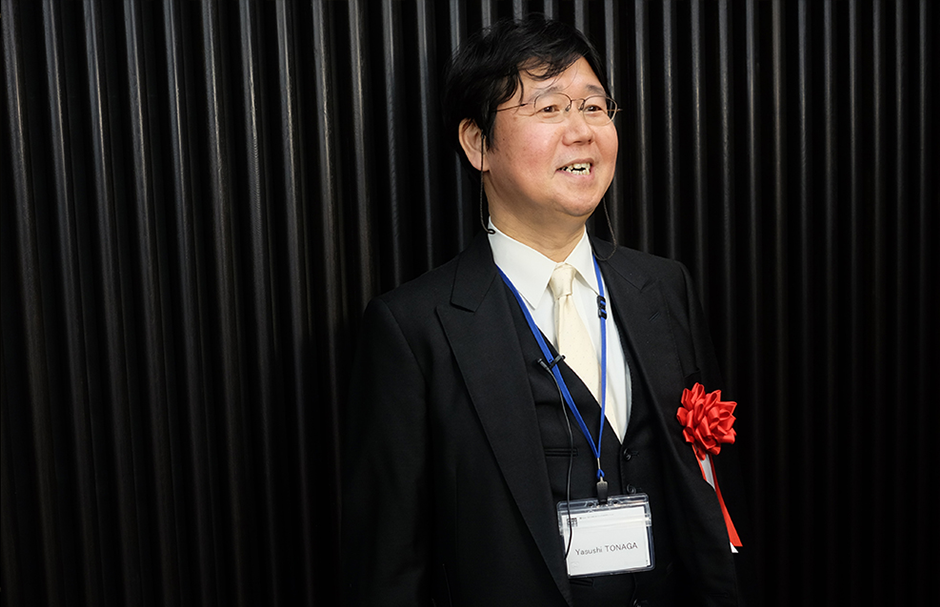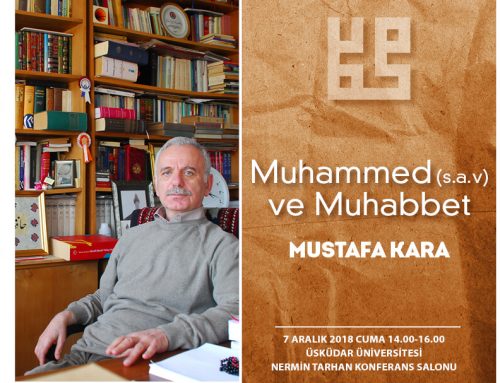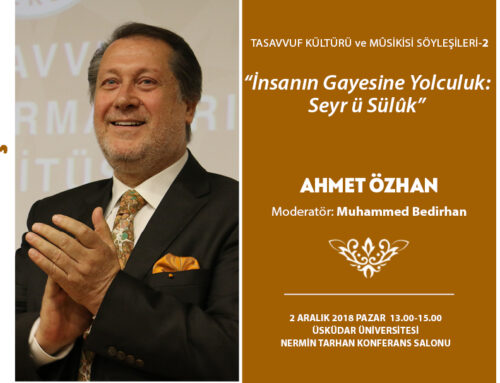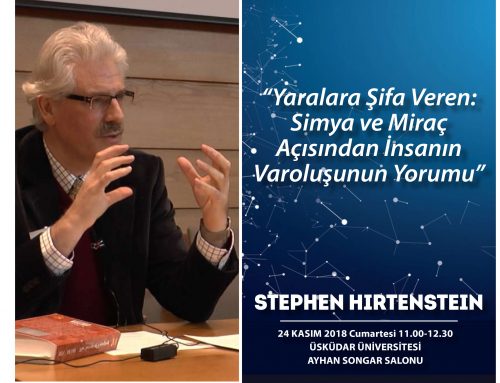The Center for Sufi Studies was established in Japan. The center is headed by Prof. Dr. Yasushi Tonaga.
Balçiçek İLTER / GAZETE HABERTÜRK
Imagine a group of Japanese professors, all of them very valuable names, well known for their work in their fields… What if I told you that they all lined up side by side on the sidewalk and waved until the bus carrying us Turks disappeared from sight? And that they all spoke Turkish fluently? Let me give you one more detail, that a chair of Sufism was opened at Kyoto University? Would you say, “No way!”? Don’t. Because all of these things are completely true. Last week they were going to be the subject of Monday Talk, but as you know, our country was shaken by an extremely painful experience, so this article “Good things are happening in our country and in the places it reaches” was left for today.
The guests of Monday Sohbeti are Cemalnur Sargut, known for her Sufi studies, and Prof. Dr. Yasushi Tonaga, President of Kyoto University Sufi Studies Center.
OPENED IN THE US AND CHINA
First some information… The organization under the name of Kenan Rifai Islamic Studies is not the first in Japan. It was opened by TÜRKKAD and Kerim Foundation in 2009 in Chapell Hill, North Carolina, USA, and then in 2011 at the Institute of Advanced Humanities at Peking University, China. Cemalnur Sargut’s words at the opening of the center seem to sum it up: “We need this understanding today. This is the only way to get rid of terrorism. We started establishing these institutes in America five years ago, and one of our graduates is one of the most important Islamic writers in America. When we decided to open one in China, they said, ‘Don’t do it, Hodja’. But look, it happens when you believe!”
WHY JAPAN?
As for another information I learned from my Kyoto trip… There is a short book called ‘Tao Te Ching’ consisting of 81 chapters written by a sage named Lao-Tzu around Beijing in China 4-5 centuries before Christ. About 100 years later, another Taoist thinker named Chuang-Tzu wrote a commentary on this book. Professor Isutzu, based on the Tao Te Ching and Chuang-Tzu’s interpretation of it, does a semantic analysis of the key concepts in Taoism. And he sees that the key concepts in Ibn Arabi’s Sufism and the key concepts in Lao-Tzu and Chuang-Tzu’s Taoism are almost identical. Three people 9,500 kilometers away from each other… Two of them lived in Beijing 4-5 centuries before Christ. The third in Spain 12 centuries after Christ. There is a time gap of 17-18 centuries and a huge language difference: Arabic alphabet with 28 letters, Chinese alphabet with 40 thousand idiograms. Now these thinkers are saying the same things and expressing the same world view. And Professor Izutsu… And Cemalnur Sargut, Yasushi Tonaga… Here is perhaps a very short answer to the question “Why Sufism, why Japan?”….
‘WE WILL TELL THE JAPANESE THE TRUE FACE OF ISLAM’
Prof. Dr. Yasushi Tonaga is the head of the Center for Sufi Studies at Kyoto University. Tonaga is a lecturer at Kyoto University’s School of Asian and African Studies and a researcher at the university’s Center for Islamic Studies. Tonaga sends students to Turkey to study Islamic Sufism. For this reason, most of his students speak Turkish very well, just like him. One of Tonaga’s biggest goals is to raise awareness among the Japanese public against Islamaphobia. The professor became interested in Sufism after being influenced by a book written by one of his professors on Ibn Arabi and his ideology. After studying at Cairo University between 1986-1988, he came to Turkey. After realizing the importance of the Ottoman period for Islamic culture, he started researching Islamic civilization and mysticism in Islam.
-Why mysticism?
I am not only interested in Islamic mysticism, but mysticism in general. In this new center we have opened, I would like to do a study on the comparison of various mysticism trends. Not only Sufism, but also the comparison between Islamic Sufism and Buddhist mysticism, for example…
-Is there Islamophobia in Japan?
Islamaphobia is not so high in Japan compared to Europe or America. In fact, Japanese people have very little general knowledge about Islam. Anyway, I think there are several kinds of Islam. One is radical Islam, which is very terror-oriented. But traditional Islam in Turkey is very different from this kind of Islam. Because the tradition of Sufism and tariqa is different. In this center, I would like to show the true face of Islam with the example of Turkish Islam based on Sufism. If we succeed in our center in informing the general Japanese public about the other side of Islam, Sufi Islam, they will see Islam in a different light, and perhaps we will have a contribution in changing the current image of Islam.
-Can you tell us about the students?
Every year I select one or two students for Sufi studies… Some of them are interested in Arabic Sufism and some in Iranian Sufism. Recently, half of my students are interested in Turkish Sufism. My students are in Turkey for a few months, sometimes even a few years. Here they either carry out fieldwork or spend their time in libraries and archives.
BRIDGE BETWEEN THE FAR EAST AND THE MIDDLE EAST
-How close are the Japanese to Sufi thought?
Japanese people are very interested in mysticism because there is a tradition of mysticism in Japan. In the future, I want Kyoto to become a center for Sufi studies in Asia and the Far East. We want our center to serve as a bridge between the Far East and the Middle East. That’s why I want to send many of my students to Turkey to study Sufism. To do research not only on Sufism in modern Turkey but also on Sufism in the Ottoman period. I would also like Turkish students and academics to come to Kyoto University and give seminars.
Cemalnur Sargut, Founding Member of Kerim Foundation
‘WE MUST SEE THE WHOLE, NOT THE PART’

-You emphasized “Islamic terror” in your opening speech… On the other hand, Turkey is trying to cope with many waves of terrorism, how can we ordinary people stand upright?
Shall I start with our biggest mistake? We read our books, our spiritual books, as the books of that era and say, “Oh, how beautiful” and leave them. However, their aim is to reduce it to today’s life, to understand ‘How do I live these things? And that is what Sufism is. Sufism is a science of life. It is not only about ideas and knowledge; Sufism is a science of state. To be able to see the inner meanings of events is only to realize that from the largest to the smallest, from the macro to the micro, or from the micro to the macro, Allah expresses the same truth in different ways. Therefore, if we first accept by faith that everything that Allah has revealed for us is true and good, then there is no such thing as seeing things in a bad light. There are great lessons to be learned from them. But you need an eye to see the whole, not the part. The eye that sees the part dwells on the harm done to it and sees it as an injustice. However, if a mother has 4 children, and one of them complains about the others, even if he/she seems to be right in his/her complaint, the mother takes the opinions of the other 3 children. It reaches a common decision to bring them all together, to reconcile them all.
-And how do we apply this teaching to daily life? How can we not rebel?
We will trust in God’s justice. If we look at it from our own point of view, maybe we see some events as unjust, but if we look at it from the point of view of the whole, from the point of view of society, from above, then we see how great justice is and how every event is a blessing for my evolution. We understand that it takes a lot of digging to get water out of the well. For my mana, which is like water, to come out, I have to go through some hardship and pain. These are blessings for me. Surgery is also painful, but in the end it restores health. When you start to think like this, you start to see grace in things, not distress. The only solution against terrorism is unity. Allah wants us to accept differences and look after each other. Because we have lost this balance and justice, perhaps we cannot stand upright in the face of problems like the terrorism we are experiencing today.
-You have experienced the greatest pain of all, you have lost your child. What do you think about the reactions after the martyr news?
First of all, when we look at the whole situation, there is a meaning in their martyrdom and no one’s death date is delayed, it will be on time. When I look across, I feel the pain of the families inside me. In this respect, I see that it is necessary to fight against terrorism, but it is also necessary to abandon heartfelt objection to the events. One has to fight one’s battles without feeling extreme sadness. If he struggles without making life hell for himself; then he will be very successful. Because he is not fighting for his ego, but for Allah. It is much more important to look at it this way, from this point of view; we will feel the pain of our brother, the mothers and fathers who lost their children there… As you said, I am also a mother who has lost a child, but on the other hand, I thank Allah for our soldiers whom Allah has brought to the honor of martyrdom, we should be grateful.
-America, China and today Japan… Sufi pulpits are advancing at full speed…
When I first set out, even we didn’t think we would get to this point. There is a great search in the world and I think that the science of Sufism will best answer this search.
http://www.haberturk.com/gundem/haber/1216113-yasushi-tonaga-dunya-terorden-ancak-boyle-kurtulabilir





